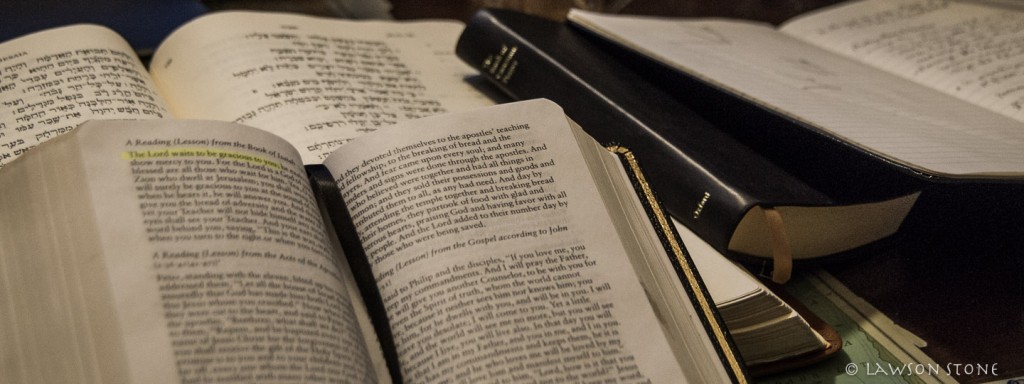reFlectionary: musings on Old Testament readings from the Daily Office Lectionary.
Season after Pentecost, Proper 13, Thursday (August 9, 2012)
Finishing Well: Gideon
Judges 8:22-35
Someone has defined “ambivalence” as watching your mother-in-law drive over a cliff…in your new Mercedes!
Gideon is typically seen as the essence of ambivalence. He has two names, Gideon and Jerub-baal. He vacillates before taking action in obedience to God’s call. And many readers feel that the hesitant, humble Gideon desperate for a miracle suddenly becomes a dark, vengeful man from whom we recoil.
Of course, a lot of this is not the text, it’s just our modern middle class idolatry for civility and niceness projected onto a desperate man living in the dangerous, dark age known as Iron I when an entire 2000 year old culture had burned to the ground and most societies in the aNE had blown apart. It would be another 200 years before any kind of order emerged. In the mean time, the promised land was over-run by gangsters, warlords, looters and highwaymen, bringing Israel to desperation. Into this situation God sends Gideon, like a wild-west marshall; he not only enforces the law, in many ways, he IS the law.
And God uses him powerfully to deliver Israel from marauding Midianite gangsters and thugs bent not on conquest, but simply on pillage, terror, and destruction from the Jezreel valley to the

Gaza strip. Gideon wasn’t looking for trouble, but when trouble came, he ultimately rose to the challenge. Gideon wasn’t looking for power. But when he knew for sure God was empowering him, he grasped that power readily and used it decisively.
But then…
The author of Judges measures each hero’s worth by their legacy:—do they finish well? What do they leave behind? As you read through the book, the legacy of each hero gets successively darker and more tragic. None of the heroes leaves behind even a descendant, much less a legacy. This shadow becomes pronounced with Gideon, the first hero to stumble at the finish line, and it happens in today’s text. You can see the outcome yourself: Israel “plays the harlot,” a phrase actually quite rare in the book of Judges. They betray the house of Gideon, and the following story of Abimelech unfolds the toxic legacy of Gideon-Jerubbaal.
But what exactly was Gideon’s failure? How could he have finished well and left a better legacy for his people?
First, lets be done with the standard, wrong view of this story. That’s the view that says that the people were wrong to offer kingship to Gideon, and that Gideon rightly claims that human authority and divine authority are incompatible. There is no reference to kingship in this story! The Hebrew text is almost awkward in its avoidance of “kingship” language. It’s just the language of ruling. So this isn’t part of any criticism of kingship in the Bible but is a more fundamental commentary on essential leadership, and especially continuity in leadership.
Gideon, as the person God empowered and used to deliver his people, is clearly the right person to continue leading them. The elders are a bit rough on the edges of their theology, but they know they want God’s chosen, anointed servant leading them. Threats still abound; if not Gideon, then who? To finish well, Gideon needed to embrace the implications of his own effectiveness.
Also, the elders “get it” that they need continuity and consistency, and so ask for a patrimonial or inherited form of leadership. Whether or not that was the right system, the concern was on target. To finish well, Gideon needed to embrace a vision of continuity for the future.
Gideon also makes a major, but common mistake: he assumes a false dichotomy between God’s authority and human structures. “I will not rule…Yahweh will rule…” He thinks if he is ruling, Yahweh can’t be ruling. This needs more discussion, and you can find it in my commentary on the book of Judges (pages 298-305). But the whole point of the book of Judges is how Yahweh

channels his saving power through flawed human beings. Gideon’s hyper-spiritual statement is a pious abdication of his responsibility to continue being the human face and hands of God’s leadership among his people. To finish well, Gideon needed to embrace God’s use of human instruments in his work.
This all converges in Gideon’s collection of the gold trinkets taken from the Midianites by the Israelites, which he uses to make an ephod. Whatever this thing was, it was a crafted image of some kind that served as a means for learning the will of God. And yet, we are told immediately that it becomes a snare and source of spiritual collapse. Gideon began his career cutting down a Baal altar ends it creating an image that leads to apostasy. To finish well, Gideon needed to realize that the best way to learn God’s will is not images and mechanical rituals, but an open ear and a receptive, faithful heart.
Lastly, we see Gideon retires and sires 70 sons, but also another, named Abimelech, who will in chapter 9 murder 69 of Gideon’s sons and destroy the city of Shechem. And he will say outright that he is seizing power precisely in the vacuum created by Gideon’s abdication of responsibility. Abimelech can point to the chaos of being ruled by 70. To finish well, Gideon needed to remember that we never retire from being called by God.
Time doesn’t permit, but I think if you look at the emergence of the early church in the NT epistles and early Christian literature, you’ll see a concern for duly authorized human leaders who represent God’s leadership in the church, who look to its future faithfulness, and who serve as guardians of the apostolic faith once-for-all delivered to the saints.
That, by the way, would be you.





One Response
Excellent, as always.
I’ve heard the Kingdom definition of “retire.” It’s when you pull over on the side of the road, put on a new set of tires, and drive on.